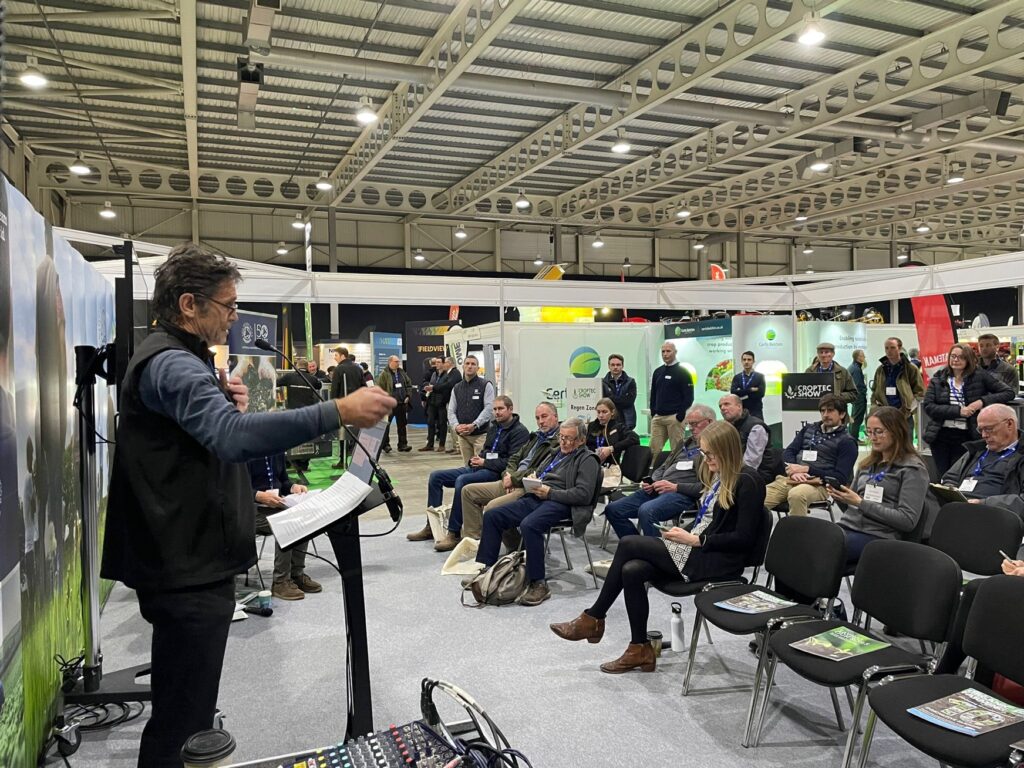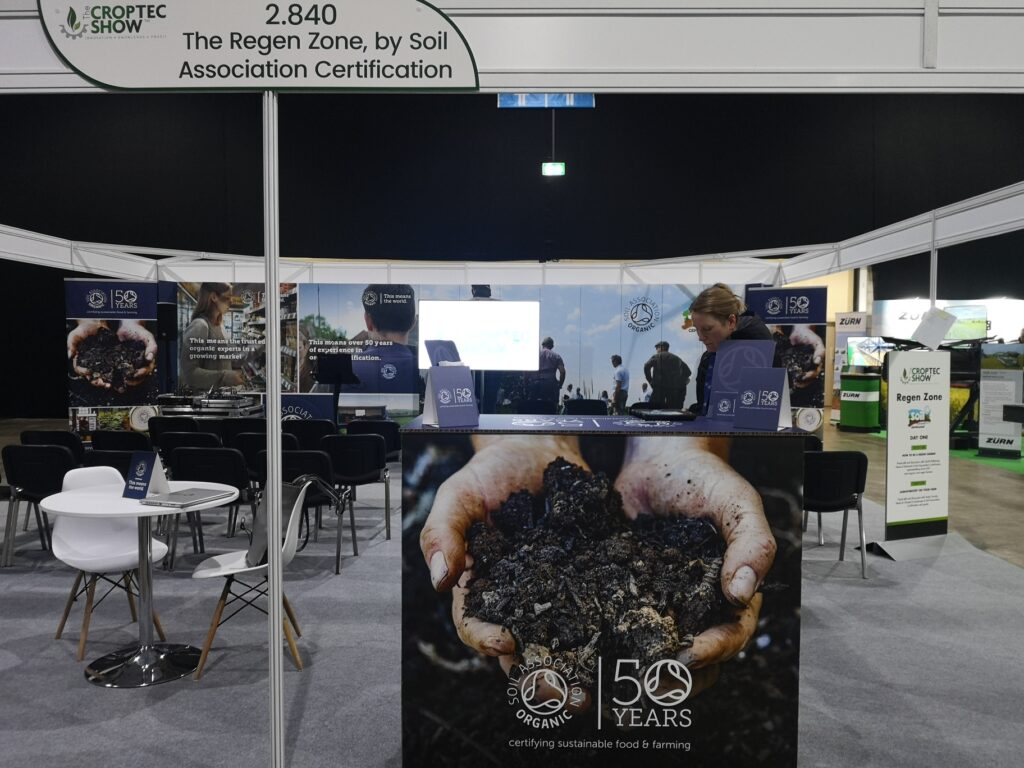Written by Jerry Alford from the Soil Association
For Soil Association Certification, hosting the Regen Zone at this year’s CropTec Show was an opportunity to meet many of the farming community who are embracing regenerative farming and highlight similarities and the benefits farmers can learn from each other.
Regenerative agriculture is an exciting grassroots movement, which is energising a whole new generation of farmers who are keen to be part of the solution to the nature and climate crises. For many existing organic farmers there is a slight feeling of déjà vu with echoes of the organic movement from 70 years ago. There are strong similarities between the principles of regenerative – increasing diversity, ground cover, minimising inputs and protecting soil – and the practices common in organic.
So, what separates organic from regenerative? Ultimately, we think they have the same North Star. It’s soil-first farming – which is why we hosted CropTec’s Regen Zone. There is much more that unites us than separates us, but a key difference is how we perceive each other, and how consumers and supply chains perceive us.
Organic is a farming system with a legally binding definition, based around a soil first attitude and, as an internationally recognised practice, is based on sound science and decades of experience. For a non-organic farmer who believes in the principles of regenerative, they might see those organic standards and regulations as restrictive and prohibitive. For those within the organic movement, these same standards and regulations are seen as a floor not a ceiling, and a useful tool to help differentiate themselves in the market. But even at the entry level, organic takes a systems-based approach that works within natural cycles – defining organic just by its standards ignores the whole farm system which makes it possible. And organic enables both farmer and consumer to be clear about the standards that the farming system has been working to.
For example, organic farmers must find natural ways to build soil fertility and manage pests and diseases because they’re not allowed to fall back on short-cuts such as artificial fertilisers or routine use of antibiotics to maintain soil and animal health respectively. The standards are a baseline – they ensure there is a consistency to what someone can expect, as a minimum, when they see something is certified organic. In reality, many organic farms and businesses will naturally go above and beyond these baseline standards.
There are areas of differences, agrochemicals and artificial fertilisers are used by some regenerative farmers but are not permitted in organic systems. And minimising cultivations is a priority for regen, but not always easy in an organic context. But we’ve always known that no farming system is perfect, and one of the positives being seen today is the willingness of both groups of farmers to learn from each other. Living mulches, cover crops, composting, intercropping and increasingly diverse rotations are becoming common in both forms of farming, and are no longer used to define the farming system.

And we shouldn’t seek to rush into a definition. By more simply being guidance, rather than rules, the five regenerative principles allow flexibility both within innovation and in farming systems. Not everyone has the desire to introduce livestock into their systems and not all regenerative farmers soil allows them to direct drill every year, but the general trend is to move farming in a more nature and soil friendly direction.
For the Soil Association’s team of farming advisors, working with farmers who share a vision of soil-first farming is a great opportunity for increasing the knowledge base in organic whilst highlighting what we have learnt about farming without recourse to artificial inputs. Working with regenerative farmers isn’t a means of developing a certification process, but a way of influencing and using the years of experience of success and failure to support the regenerative movement to continue its direction of travel. We are no longer being asked “how do you expect to grow crops without fertilisers and sprays” but “how can I?” – and that makes the regenerative movement an exciting time for all farming, organic or not.
Jerry Alford – Arable and Soils Advisor in the Soil Association’s Farming Team which provides advice on nature-friendly farming to any farmer.


